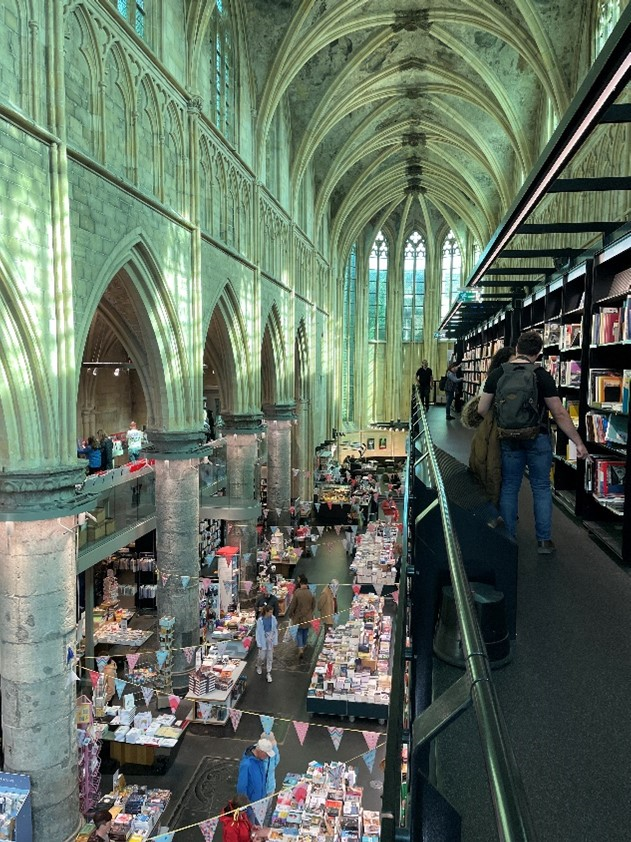By Sümeyye Şen Alpay
As an international student, relocating abroad to pursue a master’s degree with demanding coursework during the pandemic was no easy feat. Looking back on those days, I realize that adapting to a new educational system while feeling isolated hindered my ability to fully embrace the academic delights, such as international travel, conference attendance, and meeting remarkable researchers in person. Now, after a year as a doctoral student, my journey has been filled with a multitude of opportunities that reignited my enthusiasm for my career in numerous ways. One of these remarkable experiences was my week-long visit to Prof Sonja Kotz’s Basic & Applied NeuroDynamics Laboratory at the University of Maastricht in October, which was generously sponsored by the Scottish-EU Critical Oscillations Network (SCONe). My expectations for the lab visit were quite modest, revolving around introducing my research on the relationship between emotional processes and naturalistic speech processing, soliciting feedback on planned studies, and acquiring new research methodologies. At the end of the week, I departed Maastricht with more than I initially anticipated—an experience well worth sharing in a blog post.
By a fortunate coincidence, my first day at the BAND Lab coincided with attending Anna Czepiel’s PhD defense. Despite the notable variations in doctoral dissertation defenses, not only between the Netherlands and Scotland but also within different institutions in each country, her defense provided me with invaluable insights. Her exceptional presentation and adept handling of the Q&A session served as a source of inspiration for navigating my own future doctoral defense. Additionally, it was enlightening to delve into the latest literature on the neural and physiological basis of naturalistic music listening and to gain a better understanding of the advantages and challenges that ecological approaches in psychological science and neuroscience studies offer to researchers. The following day, I had the privilege of engaging in an informal coffee chat with two of the lab’s doctoral students, Hanna Honcamp and Xanthate Duggirala, during which they shared their personal experiences as PhD researchers. I’m especially grateful for my conversation with Xanthate about gathering emotional responses to vocal stimuli, as well as her patience with me as I grumbled about the challenges of measuring emotions. Equally appreciative, I am of Antonio Criscuolo, who, despite being away during my visit, managed to arrange a Zoom meeting to introduce me to alternative methods for measuring the coupling between neural activity and speech while providing valuable statistical guidance. On my final day at the BAND Lab, a meeting with Sonja, Hanna, Xanthate, and Michael Schwartze provided the feedback and advice I had been seeking.
I extend my heartfelt gratitude to the lab team for their warm welcome. My time in Maastricht, especially my visit to the enchanting Boekhandel Dominicanen, one of the most beautiful bookstores I have ever seen, and the awe-inspiring spectacle of swallows’ migration, will forever hold a special place in my memories.
